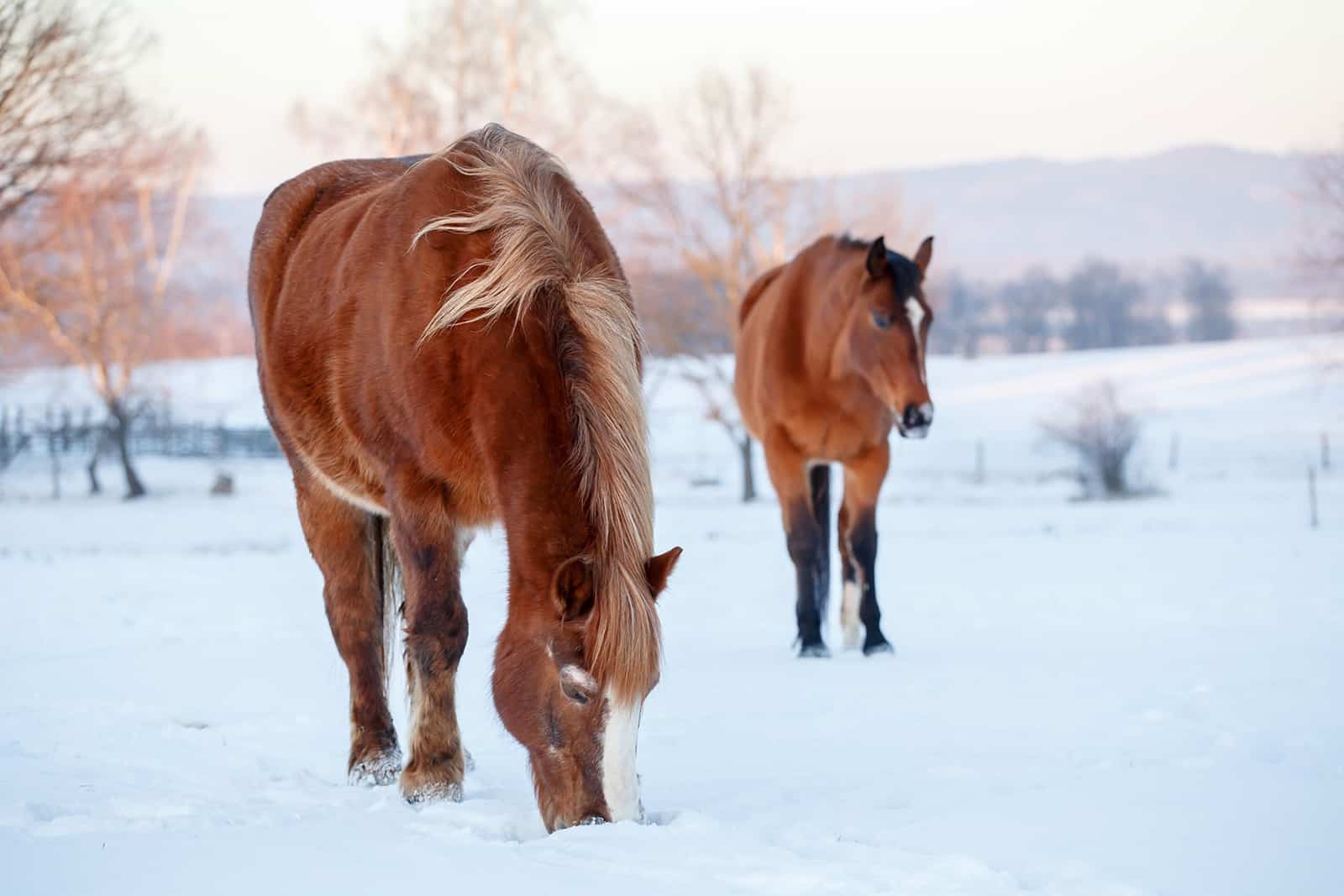Horse Health Recommendations for Extreme Winter Conditions
Dr. Pamela Wilkins offers recommendations for horse safety in extreme winter conditions, including providing shelter, warm water, and protecting older horses.
- Topics: Article, Horse Care, Seasonal Care, Winter Care
Share
ADVERTISEMENT

Horses are generally well protected from the cold through the insulating hair coat and other aspects of their physiology. However, they need protection in extreme winter conditions of cold, blizzard, or wind. | Photo: iStock
Pamela Wilkins, DVM, MS, PhD, Dipl. ACVIM, Dipl. ACVECC, Chief of Staff of the Large Animal Clinic and Professor of Equine Internal Medicine and Emergency/Critical Care at the University of Illinois College of Veterinary Medicine, offers these recommendations for horse safety in extreme winter conditions:
- Provide warm water. Provide warm water at least twice a day or use a water-heating unit if the horses drink from a common water source in a field. Make sure the heating units are working properly and no stray voltage is leaking into the water. If horses must drink cold water, they may not drink enough, which could contribute to impaction colic and dehydration.
- Provide shelter. Horses are generally well protected from the cold through the insulating hair coat and other aspects of their physiology. However, they need protection in extreme winter conditions of cold, blizzard, or wind. The insulating hair coat becomes significantly less effective when wet through, and horses should be sheltered from the cold when freezing rain is combined with cold weather.
- Make food available. Be sure their food source is free of snow and ice. Increase the availability and proportion of hay in the diet during cold weather. Additional fiber for the hindgut to digest increases their ability to stay warm by fueling the “internal furnace” that is constantly fermenting their food.
- Protect older horses. Winter is harder on older horses. Hazards include slipping and being unable to get up and insufficient body fat to withstand the cold due to poor dentition or other issues. Older horses may require much more care than younger horses in winter.
- Protect horses not acclimated to the cold. While generally horses are well-equipped for cold, horses that have been competing and/or recently retired may not have the kind of coat they need. It may take a couple of winters for them to adapt and grow a good winter coat. Keep these horses in a barn during extreme cold weather. These horses may need to wear insulating winter blankets.
Reprinted with permission from the University of Illinois College of Veterinary Medicine
Create a free account with TheHorse.com to view this content.
TheHorse.com is home to thousands of free articles about horse health care. In order to access some of our exclusive free content, you must be signed into TheHorse.com.
Start your free account today!
Already have an account?
and continue reading.
Share
Written by:
University of Illinois College of Veterinary Medicine
Related Articles
Stay on top of the most recent Horse Health news with












